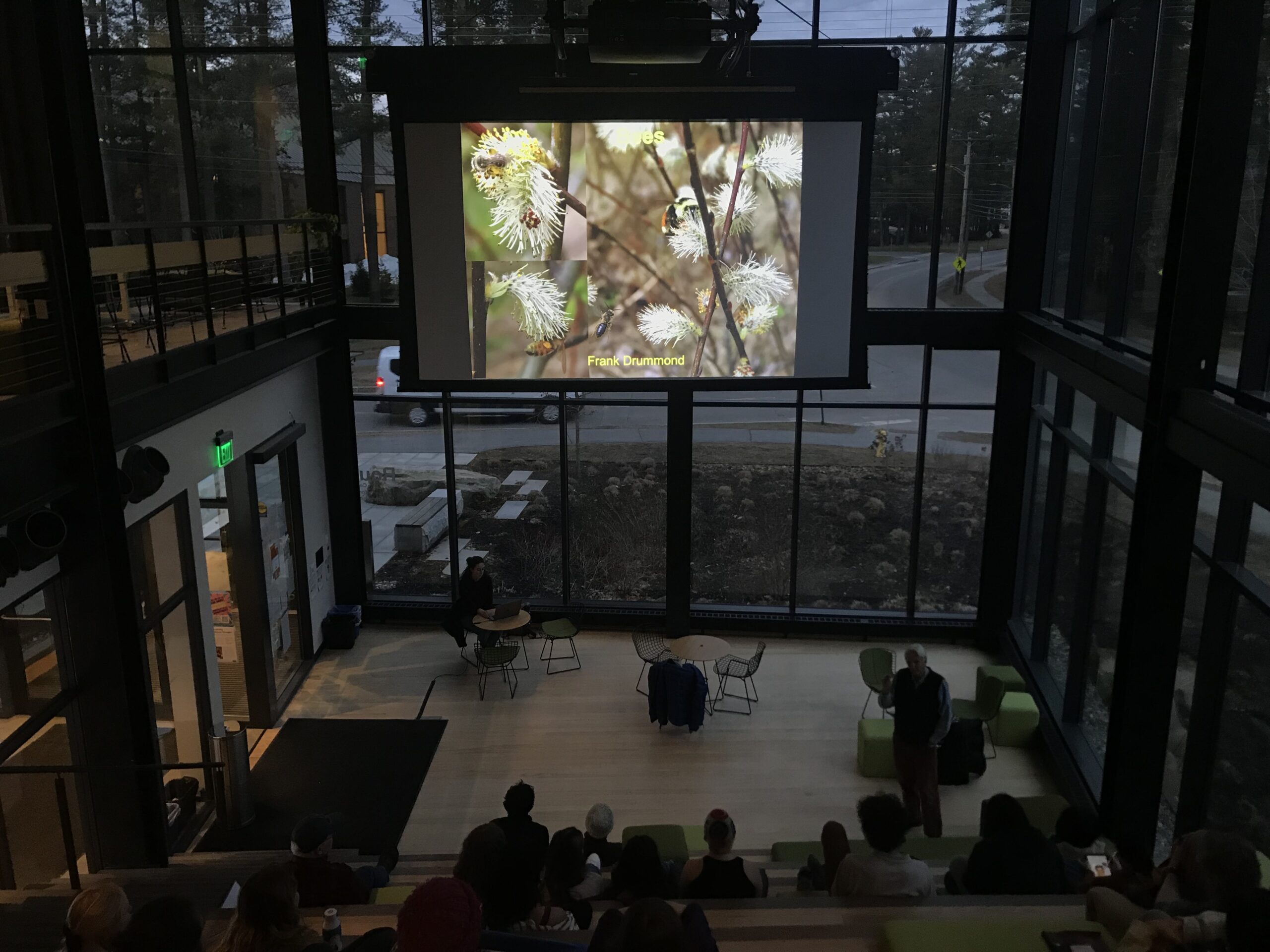Anyone can be a beekeeper: “Biology of Bees” sparks interest in beekeeping on campus
April 7, 2023

For Frank Drummond, a professor of insect ecology at the University of Maine, Orono, studying bees represents not only a career, but a lifelong passion.
“I started raising honey bees when I was 12,” Drummond said. “And now I’m a gray-hair. So it’s been a long time.”
Last night, students and faculty gathered in the Roux Lantern to learn the basic science behind bees, pollination and beekeeping. Hosted by the Bowdoin Organic Garden (BOG), “The Biology of Bees: An Introduction to Beekeeping” aimed to both educate the audience on the ecological importance of bees in the local ecosystem and spark interest in bees and beekeeping on campus.
“That was the thought behind having this lecture, which is our first bee-focused event—to not only give an opportunity for people to come and learn about bees but also to gauge the level of student interest [in the topic],” Organic Garden Supervisor Lisa Beneman said. “[Drummond is] an expert on insects in general and has done tons of research on pollinators in relation to blueberry cultivation in Maine, and [he] just seemed like a really great person to bring [who already] knows the college audience as a professor himself.”
Drummond began by giving an overview of the behavior and biology of a handful of common bee species, such as bumble bees and honey bees, and he emphasized the variety of pollinators that are present in our local ecosystems. To complete the talk, he discussed the ongoing threats to bee biodiversity, noting that some species have already begun to go extinct.
“There are 278 [bee] species that have been documented in Maine, and we hope that the number that are in Maine right now is close to 278,” Drummond said.
Following Drummond’s lecture, it was clear that the audience was just as interested in learning about bee biology as it was in hearing more about the possibility of bee programming at Bowdoin.
Dining hall greeter Doug Calhoun, a longtime bee enthusiast and member of the Maine State Beekeepers Association, has long had dreams of bringing more attention to beekeeping at Bowdoin and potentially even installing a hive of honey bees on campus.
“I’ve been thinking about it for a number of years because it really would be nice to have bees here,” Calhoun said. “The BOG’s a beautiful spot.… They could easily put a couple of hives there.”
As supervisor of the BOG, Beneman expressed excitement about hosting a hive on campus but also spoke to the various complications involved with such a project.
“What’s the possibility of there being bees at the garden? The answer to that is not super straightforward because, as a living thing, bees do take a pretty high degree of care,” Beneman said.
As the College considers the possibility of bees on campus, BOG events like Drummond’s lecture aim to increase student engagement with the topic.
“The message you always like people to walk away with is the importance of bees and pollinators,” Calhoun said. “It’s very important to protect them. And anyone can be a beekeeper.”
Beneman echoed these sentiments, highlighting the importance of student involvement in moving the process forward.
“I hope that there’s some people that walk away from that event feeling energized about the idea, and that if it’s something that they really are passionate about trying to make happen here, that they get in touch and can be a part of working towards that goal,” Beneman said. “The student passion and backing has to be there.”
“I knew that bees are under threat, just generally speaking everywhere, and I was curious to see how that was in Maine,” attendee Ravi Mehta ’26 said. “I think especially because they’re a keystone species, that they play such an important role in our ecosystem. So doing any part [to help them], that would be incredible.”

Comments
Before submitting a comment, please review our comment policy. Some key points from the policy: